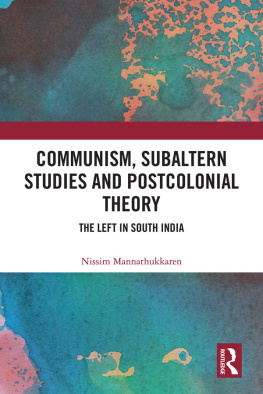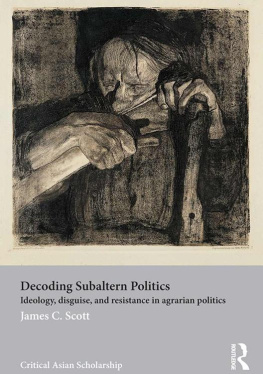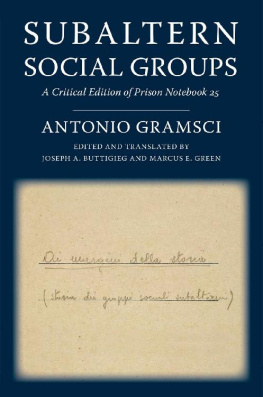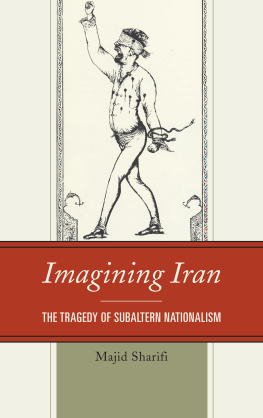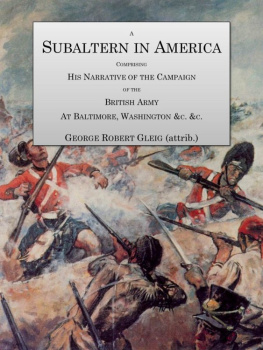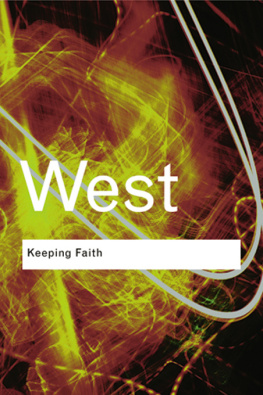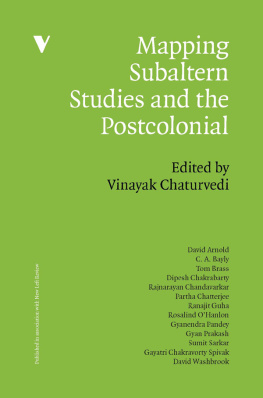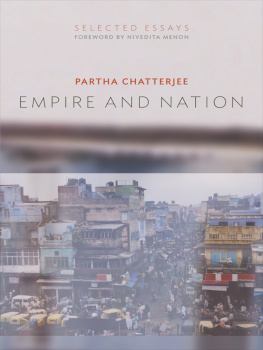T his book is indebted to many people. It emerged from a conference bearing the same title as the book, which was generously supported by Columbia Universitys Office of the Provost, then occupied by Jonathan Cole. That conference was hosted by Columbias Institute for Research on Women and Gender, whose staff members, Page Jackson and Amalia Zarranz, worked tirelessly to make my ambitions a reality (I was then its director). Many colleagues and intellectual fellow travelers attended the conference, and their questions informed the final versions of many of the essays here as well as the volume as a whole. I am grateful to all of them.
My thanks go to Jennifer Crewe and Susan Pensak at Columbia University Press for their generous editorial labor, and to those other editors who were involved in the journal or book projects that initially published some portions of some of these essays. Michle Barretts essay, Subalterns at War: First World War Colonial Forces and the Politics of the Imperial War Graves Commission, though written for this conference, was first published in Interventions 93.3 (2007) and appears by permission of the journal. Parts of Pheng Cheahs essay, Biopower and the New International Division of Reproductive Labor, first appeared in his book, Inhuman Conditions: On Cosmopolitanism and Human Rights (2006) and are reproduced here by permission of Harvard University Press. Gayatri Chakravorty Spivaks essays appeared in Cary Nelson and Lawrence Grossberg, eds., Marxism and the Interpretation of Cultures (1988) and A Critique of Postcolonial Reason: Toward a History of the Vanishing Present (1999) and are included here with her permission.
REFERENCE TO SPIVAKS ORIGINAL ESSAY, Can the Subaltern Speak? and to the History chapter of A Critique of Postcolonial Reason in which it is both reprised and revised appear in both parenthetical and footnoted references. To aid the reader, these are accompanied by a second set of references (immediately following the first, but separated by a /)to those texts, as they appear in the present volume.
C an the Subaltern Speak? Reflections on the History of an Idea began as a conference, hosted by the Institute for Research on Women and Gender, at Columbia University. The title was a seductive simplification, marking the spot where, it was hoped, several debates and discourses might converge in the consciousness of their debt to an extraordinary essay, Can the Subaltern Speak? penned by Gayatri Chakravorty Spivak some twenty years previously. We might have subtitled the conference, or this volume, something as infelicitously expansive as Reflections on the history of some ideas about the s/Subject of history, the international division of labor, the contemporary relevance of Marxism, deconstruction, Asia, Europe, gender, and capitalisms worlding of the world. Though the fulsome description would perhaps have provided a better index of the scope and ambition of the original essay, it too would have been a mere placeholder for the many difficult questions that unfold out of Spivaks essay.
The conference was not occasioned by a retirement; it marked no (anticipated) diminution in the pace or output of Spivaks continued writing. Neither of these possibilities occurred to me when organizing the event. It was, rather, prompted by the felt need to respond to the more intellectually ambiguous demand of an institutional anniversary which simultaneously remarked 250 years of Columbias Universitys operation and 20 years since women were admitted to Columbia College. It seemed appropriate to turn to Spivaks essay in this contextnot out of any misplaced overidentification with third world women on the part of Western academic feminists, but, rather, in an effort to grasp, once again, the full implications of her insistent and uncompromising introduction of the questions of gender and sexual difference into the critique of radical discourse in the universities of the West and in subaltern studies in India and South Asia.
Our project was, I hope and believe, innocent of nostalgia. Few interventions have retained with such tenacity the radicality or the relevance that Spivaks essay continues to possess today. It has been cited, invoked, imitated, summarized, analyzed, and critiqued. It has been revered, reviled, misread, and misappropriatedin its original and its abridged forms, in English and in translation. And it has, of course, been revisited by Spivak herself, in the expansive History chapter of A Critique of Postcolonial Reason: Toward a History of the Vanishing Present.
One often encounters inadvertent testimonies to the revolutionary quality of the thought contained in Can the Subaltern Speak? Occasionally, these run to the comic, though the pathos of the differend (the mutual untranslatability of discourse), which appears as a merely lexical matter, also reveals something about the particular difficulty of writing and reading gender into historical analysis. Consider, for example, a recent translation of the title into Russian (within a translation of a more recent essay on terror). In the initial draft the translator rendered in Russian what, when translated back into English, might have read Can Junior Officers Speak? The woman, as Spivak tells us, inevitably is doubly in shadow.
Problems of translation are less analogues than metonyms for the problems of reading that Can the Subaltern Speak? simultaneously performs, thematizes, and theorizes. But if we are stretched to the limits of our intellectual capacity in the act of reading Spivaks writing on reading the silences of historythere are some categorically untenable misreadings that need to be dispatched before anything further can be said. Among them: those that understand the silence of the subaltern as a simple absence in the recordto be supplemented and transcended by the work of information retrieval (Spivak endorses such retrieval, but she understands it to be a matter distinct from the question of theorizing the impossibility of subaltern speech as audible and legible predication); those that discern in the essay a constitutive opposition between practice and theory, variously attributing to Spivaks own intervention an advocacy for one or the other (she emphatically rejects that binarity); those that claim she has rendered the Indian case representative of the third world (she insists on the choice of India as an accident of personal history and as a nonexemplary instance in which, nonetheless, global processes can be seen to generate their effects); and those, in the most egregious misreadings, that discern in the text a nativist apologia for widow burning on the grounds of its authentic ritual status! (it is a position that she herself terms a parody of the nostalgia for lost origins [297/269]).



